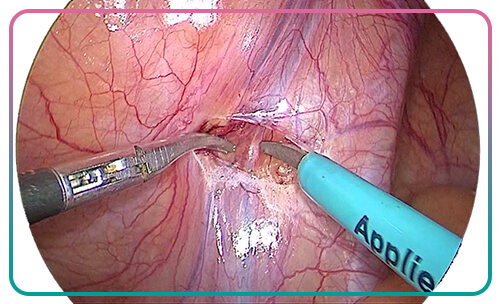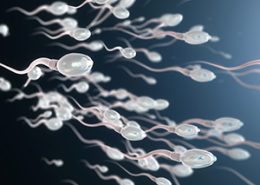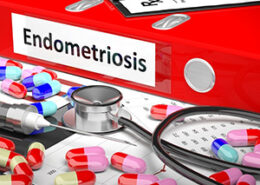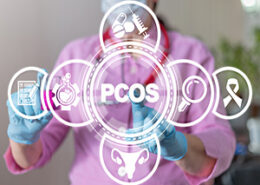Varicocele; Causes and treatment
Varicocele is one of the most common causes of male infertility. This complication occurs when the veins in the scrotum become enlarged and swollen due to impaired blood supply. Varicocele affects about 15% of adult men and is more common in young men aged 15 to 25 years. The cause of varicocele is not known definitively, but its complications can lead to decreased sperm production and quality and fertility problems. So that about 40% of infertile men have varicocele
Varicocele is usually seen in the left testicle and rarely affects the right testicle. This issue is due to the difference in the anatomy of the left and right testicles. Varicocele is usually painless, so it may remain hidden for years until complications appear. If a varicocele is not associated with severe symptoms and fertility problems, it does not require treatment. If the varicocele is not accompanied by severe symptoms and fertility problems, it does not need treatment. But if varicocele causes infertility in men, it can be treated by surgery. In this article, we will examine the symptoms, causes, and treatment of varicocele.
What is a varicocele?
The scrotum is a sac of skin that keeps the testes outside the body. Inside this sac, some arteries and veins supply blood to the testicles. Dysfunction of the veins inside the scrotum causes dilation of the veins, which is called varicocele. This disease is very similar to the varicose veins of the legs.
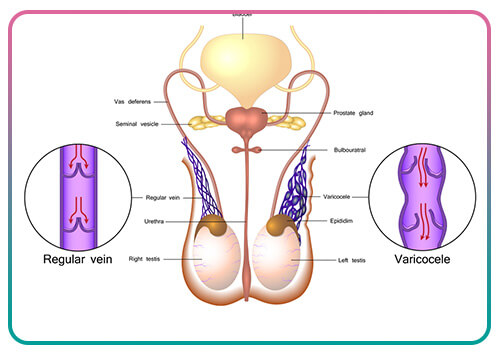
Varicocele usually appears during puberty and may become larger and more noticeable over time. Varicocele often has no symptoms and does not cause any problems. But in some cases, varicocele can reduce the quality of sperm and cause fertility problems. In addition, the disruption of blood supply to the testicles can gradually shrink the affected testicle due to varicocele.
What is the cause of varicocele?
The exact cause of varicocele is not clear. However, many experts believe that the cause of varicocele is a disorder in the valves inside the spermatic veins, which prevents the proper passage of blood. Therefore, the blood collects in the veins and swells, and can damage the testicle. Varicocele occurs mostly in the left testicle. The cause of this issue is the long path of the left testicular vein compared to the right testicular vein.
Another cause of varicocele can be swelling in the lymph nodes behind the abdomen or abnormal masses in the abdomen. Swelling in the abdomen can increase the pressure on the testicles and block the blood flow path and causing sudden swelling in the veins of the testicles.
What are the symptoms of varicocele?
Varicocele usually has no symptoms and is often not diagnosed until examinations and tests are performed. However, a varicocele may worsen over time and cause the following symptoms:
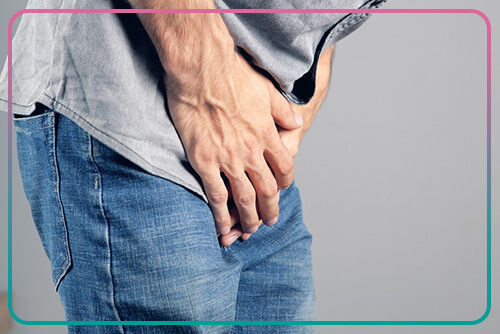
- Pain in the testicles worsens with prolonged standing and improves with lying down.
- Pain in the testicles that increases after heavy activity and exercise
- Swelling and protrusion in the scrotum
- Palpable swollen veins or mass in the scrotum (especially in the left testicle)
- Asymmetry in the testicles and changes in the size of the testicles
- Feeling of stretch and heaviness in the testicles
- Infertility problems
What are the complications of varicocele?
In some cases, varicocele can cause the following complications:
- Shrinking of the testicles: Atrophy or shrinking of the testicles is one of the complications of varicocele. Although the exact cause is not known, it seems that the dysfunction of testicular veins causes blood to accumulate in the veins and increases the pressure on the testicle, and gradually causes the testicle to shrink and soften. In addition, the pooling of blood in the veins exposes the testicle to toxins in the blood, which may damage the testicle.
- Disturbance of hormonal balance: increasing the pressure on the testicle can disrupt the function of the testicle and affect the secretion of some hormones. Therefore, a varicocele may affect testosterone and LH hormone levels.
- Infertility: Male infertility is one of the most serious complications of varicocele. This condition causes infertility in men by reducing the number and movement of sperm, changing the shape of sperm, and damaging sperm DNA. So about 40% of men who have primary infertility problems have varicocele. In addition, the prevalence of varicocele in men with secondary infertility is about 70%.
How Can Varicocele Cause Infertility?
It is not known exactly why varicocele causes infertility in men. But experts propose different theories for this issue:
- Accumulation of blood in the testicular vein causes the testicular temperature to rise. An increase in testicular temperature can damage sperm and reduce their quality.
- Poor blood circulation in the testicles can increase toxins in the blood and affect sperm health.
- Increasing the pressure on the testicle can disturb its function of the testicle and cause problems with the production of sperm.
- Weak blood circulation in the testicles disrupts the supply of oxygen to the testicles and prevents the production of healthy sperm.
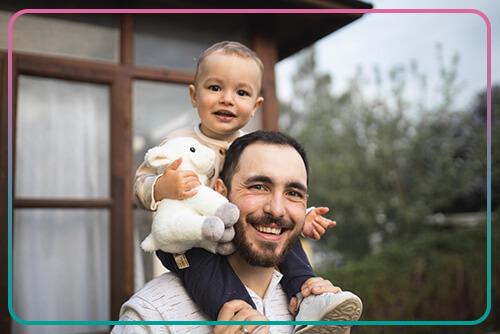
How is a varicocele diagnosed?
The first step in diagnosing a varicocele is a physical examination by a doctor. If the varicocele is large enough, the doctor will be able to palpate it. In this case, the structure of the testicle is similar to a bag full of worms. If the varicocele is small, the doctor asks the patient to stand and take a deep breath and hold it. This helps the doctor better to diagnose the abnormal enlargement of the testicular vessels.
In the physical examination, in addition to examining the vessels of the testicle, its appearance is also examined. A small testicle, especially the left testicle, can also be one of the signs of varicocele.
If the doctor cannot diagnose varicocele by physical examination, the doctor uses an ultrasound for further investigation. In this method, accurate images of the scrotum are obtained using sound waves. Using ultrasound, the doctor can determine the diameter of testicular veins and comment on the type and severity of the disease.
The symptoms of varicocele on ultrasound are veins with a diameter of more than 3 mm and abnormal blood flow in the testicular veins. It is also possible to determine the exact size of the testicles with ultrasound.
What are the different types of varicocele?
Varicocele can be classified into three grades based on severity and type of diagnosis:
- Grade 1 varicocele: In this group, the vessels whose function is impaired cannot be seen or palpated, and ultrasound should be used for diagnosis.
- Grade II varicocele: Varicocele is not visible in this grade, but it can be palpated and detected by the doctor during the examination.
- Grade 3 varicocele: The varicocele is easily visible from the scrotum, and a physical examination is not required for diagnosis.
Does varicocele need treatment?

Many men with a varicocele do not experience any symptoms or pain and often have children without any treatment. As a result, varicocele treatment is not necessary in all cases. But if a varicocele is associated with pain, shrinking testicles, and infertility problems, treatment should be done with the doctor’s opinion.
The only treatment for varicocele is surgery. During the surgery, the damaged vessels that supply blood to the testicles are closed or removed. The purpose of this work is to direct blood flow in the healthy vessels of the testicles, which often helps to improve sperm quality.
Many men can have children naturally after varicocele surgery. But some have to use assisted reproductive methods such as IVF and ICSI to become a father.
What are the treatment methods for varicocele?
Methods used to treat varicocele include the following:
-
Open surgery
This method is the most invasive method of varicocele treatment. Varicocelectomy surgery is performed under general anesthesia or local anesthesia. In this surgery, the doctor first examines the condition of the veins using a surgical microscope or a Doppler ultrasound machine. Then, by making an incision on the groin or abdomen, the doctor accesses the damaged vessels of the testicle and closes them so that blood flows through healthy vessels.
Due to the use of a microscope, varicocelectomy is one of the most accurate varicocele surgical procedures, which is more successful than other surgical procedures. It takes about 3 months to produce healthy sperm in the testicles, so people who undergo varicocelectomy surgery can check their fertility status at least three months after the surgery.
-
Laparoscopic surgery
In this method, the surgeon makes a small incision on the abdomen and inserts delicate surgical instruments and a special camera into the body. Using the camera images, the doctor finds the exact location of the varicose veins and closes them. This surgery is also performed under general anesthesia.
-
Skin embolization
This method is an outpatient surgery that is usually performed under local anesthesia. To perform this procedure, the radiologist and the surgeon must work together. So the radiologist inserts a narrow tube into the body through the jugular or groin vein. The specialist doctor identifies the exact location of the swollen veins using X-ray images and injects a special solution. This solution helps to close the swollen vein and reduce the amount of swelling and blood accumulation. The rate of using this method to treat varicocele is less than the other two methods.
What are the complications of varicocele surgery?
Varicocele surgery is the only treatment method for varicocele. The success rate of this treatment depends on the severity of the disease and the skill of the surgeon. Scientific research shows that the quality of semen improved after surgery in more than two-thirds of patients. In addition, about 30 to 50 percent of couples can conceive naturally after surgery.
Varicocele surgery is associated with relatively few risks. But sometimes the patient may experience complications after surgery. These complications include the following:
- Formation of fluid around the testes (hydrocele)
- Disease return and varicocele recurrence
- Infection
- Damage to other testicular vessels
Choosing a skilled and expert surgeon can reduce the possibility of such complications. Therefore, it is necessary to be careful in choosing your doctor before treatment.
Varicocele treatment in Iran
Varicocele treatment in Iran is usually performed through surgery and is available in specialized and advanced fertility centers. Two common surgical methods are microsurgery (with high precision and minimal complications) and laparoscopy (less invasive and with a shorter recovery time). Additionally, embolization is used as a non-surgical option, in which the damaged veins are blocked to stop the abnormal blood flow.
The main goals of varicocele treatment are to improve male fertility problems, relieve pain, and prevent testicular growth. Varicocele cannot generally be treated with medication, and the only effective way is through therapeutic interventions such as surgery or embolization. The best treatment option depends on the patient’s physical condition, age, symptoms, and the specialist’s recommendation.
Varicocele Surgery Cost in Iran
The cost of varicocele treatment in Iran is significantly more affordable compared to many other countries. Depending on the type of procedure and treatment center, prices usually range from $1,000 to $2,000, while maintaining a high standard of medical care.
Contact us for more information about varicocele treatment in Iran.

